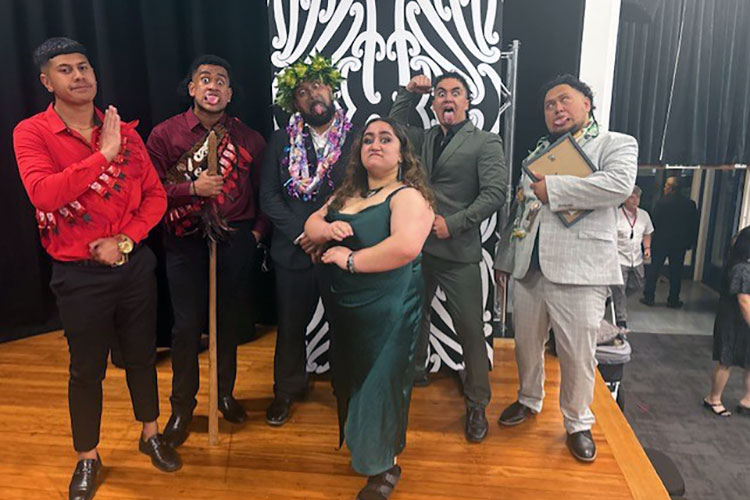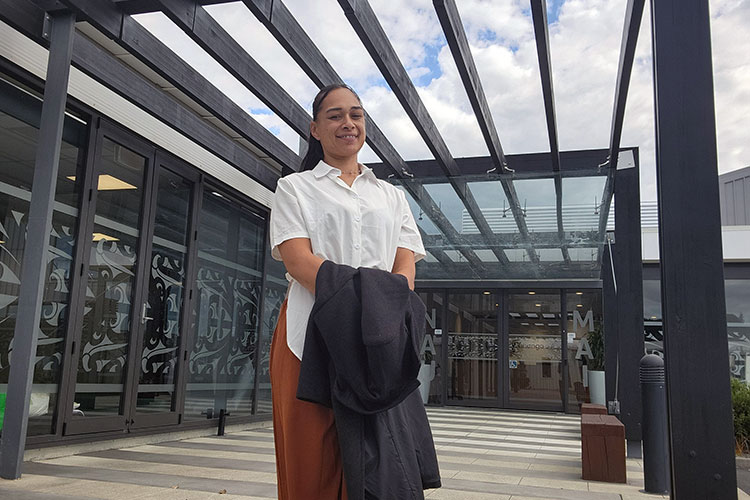Her son Hepa had taken his own life just two years after her older son died following a car accident.
And as Heeni Morehu was about to lay him to rest she could only think of one thing;
“I just wanted to lie next to my son, go to sleep and never wake up.”
It had been a harrowing few years for Heeni’s whānau following the death of Hepa’s older brother Kahu, who died in 2009 – 10 days after he fell asleep at the wheel of the vehicle he was driving and collided head-on with a truck near Rotorua.
Hepa, who was in the car and asleep at the time of the accident, survived the crash completely unscathed.
But while he came out of the accident alive, he carried the burden and guilt of his brother’s death.
It was something that he never recovered from, his mother says.
“I think that was probably the reason he did what he did,” said Heeni who works in Management Education Delivery at Te Wānanga o Aotearoa Waiariki.
“He grieved a lot for his older brother because for most of their lives it was just the two of them and they were very close.”
“He thought that if he (Hepa) hadn’t fallen asleep then his brother would have stayed awake too and he would still be here.”
Last week Heeni launched her book The Tree of Life: My Journey with Grief.
She is hoping it will provide open dialogue, insights and help for others in preventing suicide at a time when suicide rates among Māori teenage males have spiked.
Ministry of Health figures show that over the 10 years from 2003 to 2012, Māori youth suicide rates were at least 1.7 times the non-Māori youth suicide rates.
But the most recent figures show the Māori youth suicide rate has increased and is now 2.8 times the non-Māori youth rate or 48 deaths per 100,000 Māori as opposed to 17.3 per 100,000 non-Māori.
Heeni says she spoke openly about suicide with her son, particularly as a number of youth suicides in Kawerau became headline news in 2010 and 2011.
She even asked him point blank whether he had thoughts about killing himself.
“This was at a time when we were still grieving for Kahu so I asked him was he feeling suicidal and he said he was. He didn’t lie.”
She asked him if he thought counselling would help but Hepa rejected all assistance.
Still, Heeni thought things with Hepa’s life were on the mend when he got a dog and a truck and spent a lot of time in the bush, pig hunting.
On his last day Hepa was quiet, which wasn’t unusual, but appeared happy at a whānau gathering at their marae in Rotoiti.
A lot of his cousins were there along with their aunties and uncles.
There were card games among family members, a few drinks, singing – and a suicide.
Hepa was 16 years old.
Heeni said the tragedy drove her to drink and left her inconsolable to the point that she even considered ending her own life.
But talking about her grief with others helped her greatly.
She was later encouraged by friends to document and share what she was going through to help her deal with the loss.
The feedback she received about her writing made her realise that the death of her children wasn’t for nothing.
“I think it has given me the strength, I see my life differently now, I could have sat and dwelled on the sad things and felt I didn’t like my life anymore which was exactly what I thought – I just wanted to lie next to my son, go to sleep and never wake up.”
While the writing process had been cathartic, it had also given her the chance to engage with clinicians, politicians and suicide prevention groups.
“There are some awesome clinicians out there but there are some people with their qualifications who don’t take heed to what whānau can contribute.”
“But I think they’re starting to listen more than what they were a few years ago.”
Heeni’s advice to parents is to be non-judgemental with their teenage children and to try to keep the lines of communication open and frank.
She said there is no shame in seeking help from outside of the whānau – be it a sports coach or a role model – to help talk teens through difficult times.
Or just to listen to what they have to say.
“Sometimes as parents we are thinking because these are our kids that it is our job to fix it but sometimes it is not. We don’t always have the answers, yes they are our babies and yes we know them better than anyone but we don’t always have the right solutions.”
“Our nannies and koro have an ability to listen which is what we as parents probably don’t do enough – we have plans for our kids and so sometimes it takes one comment and they will close up and tell us what we want to hear and not what they feel.”




































